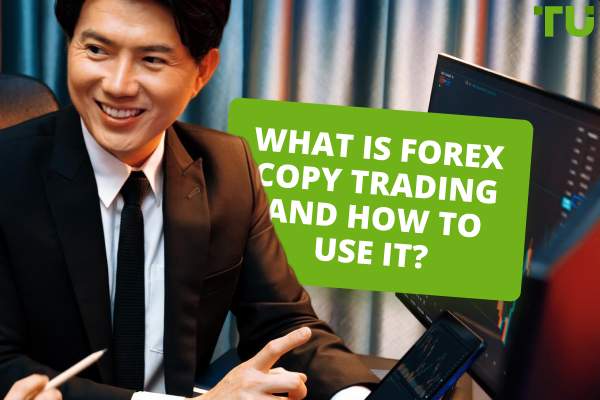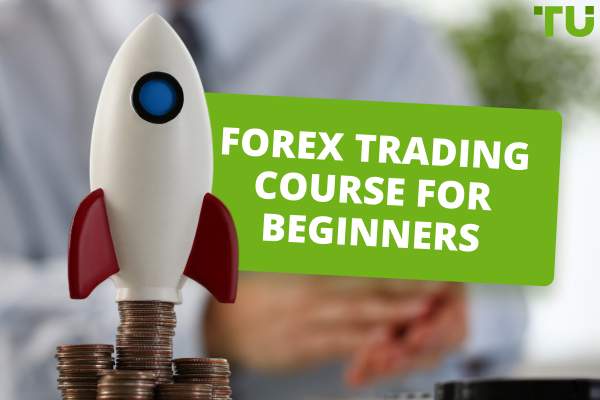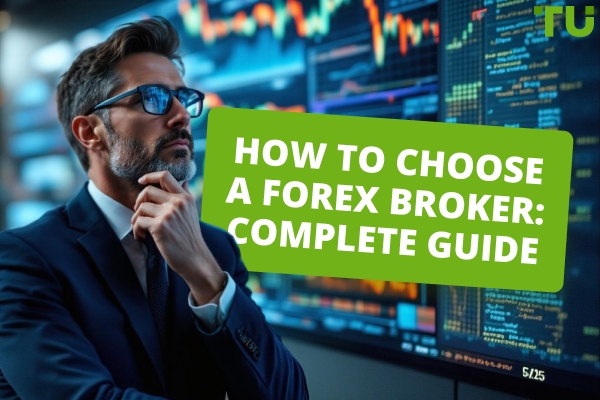Can I trade Forex for a living?
Yes, it is possible to trade Forex for a living. However, it requires discipline, hard work, and consistent learning and practice to be successful. To increase the chances of the same, experts suggest having a solid trading plan, understanding the market and its risks, and developing a sound risk management strategy.
Trading Forex as a means of generating income is an attractive prospect for many individuals. With the potential for high returns and a 24/7 market, it is an ideal way to achieve financial freedom. However, before diving into the world of forex trading, it's essential to understand the risks and responsibilities involved. In this article, the experts at TU will explore the viability of trading Forex for a living and provide insights into the skills and strategies necessary to succeed.
Is it a good idea to trade Forex with no money?
Yes, it is possible to trade Forex without personal funds. By taking advantage of bonuses and promotions offered by brokers or participating in trading competitions, traders can start building their skills and potentially make profits without risking their own money. While there are challenges and risks involved, with the right approach and strategy, traders can still find success in the Forex market.
Top-3 ways of earning money at Forex without the initial capital
The foreign exchange market offers multiple opportunities for individuals to make money without putting in their own personal funds. Based on experts’ suggestions, here are the top-3 ways to earn money in the forex market without an initial capital:
1. Practice with a demo account:
A demo account provides traders with a simulated trading environment, allowing them to test their strategies and develop their skills using virtual funds. This is an excellent way for traders to familiarize themselves with the market and the forex platform without risking their own money.
2. Earn through a partner program:
Many brokers offer partner programs where traders can earn a commission by referring new clients to the broker. This provides traders with an additional source of income without the need to invest their own money.
3. Participate in competitions and contests:
Forex trading competitions and contests are often organized by brokers and independent traders' unions. Participants trade using virtual funds provided by the organizers and compete against each other to achieve the highest profits. The trader with the highest profits wins a cash prize, offering a chance to make money without investing their own funds.
How to start Forex trading with minimal risk
Starting a Forex trading journey can be exciting, but it's important to take steps to reduce the risks involved. Experts suggest the following ways to do that:
Consider copy trading: With copy trading, inexperienced traders can follow the trades of more seasoned traders and learn from their strategies. This can be a low-risk way to get started in Forex trading.
Invest in PAMM accounts: PAMM (Percentage Allocation Management Module) accounts allow multiple traders to pool their funds and have a professional manage the investments. By investing in a PAMM account, traders can minimize their individual risks and take advantage of the expertise of professional traders.
Opt for insured transactions: Some brokers offer insured transactions, which can provide traders with protection against losses. For example, if a trade goes wrong, the broker will cover a portion of the loss, reducing the overall risk for the trader.
It's important to keep in mind that Forex trading involves a certain amount of risk, and there are no guarantees of profit. That's why it's crucial to do your research, understand the risks involved, and consult with a financial advisor to make sure Forex trading is the right choice for you.
How to succeed in Forex trading?
Forex trading offers the potential for significant returns, but it also comes with risks. To give yourself the best chance at success, consider the following guidelines outlined by our experts:
Pick a reliable broker: Your first step in the Forex market is finding a trustworthy broker. Research brokers that are regulated by a reputable financial authority and have a solid reputation in the industry. Read reviews, compare options, and take the time to understand the broker's history and stability.
Educate yourself: To be effective in Forex trading, it's critical to have a comprehensive understanding of the market. Take courses, read books and articles, and practice with a demo account to acquire the knowledge and skills you need. The more you know, the more equipped you'll be to make sound decisions and minimize risk.
Have a strategy: Successful Forex traders have a well-defined plan that they follow. Whether you prefer technical analysis, fundamental analysis, or a combination of the two, it's crucial to have a strategy in place and stick to it.
Manage risk: All investments come with some level of risk, and Forex trading is no different. To minimize risk, use stop-loss orders, limit your position size, and diversify your portfolio.
Stay disciplined: Emotional trading can result in impulsive decisions and significant losses. Stay focused on your strategy, and avoid letting emotions guide your decisions. Stick to your plan, even in the face of short-term losses or market volatility.
Stay informed: The Forex market is constantly evolving, so it's essential to stay up-to-date on market trends, news, and events that may impact your trades. Follow market analysis, and take advantage of market reports and other resources offered by your broker to stay ahead of the curve.
Best brokers 2024





FAQs
Can you make a living in forex trading?
Forex trading can be a source of income, but it takes a lot of discipline, persistence, and knowledge. According to analysts, only about 5% of traders are successful in the long run.
Has anyone been able to trade Forex successfully for a living?
Yes, there have been traders who have been able to trade Forex successfully for a living. However, success in forex trading depends on several factors, including a trader's experience, discipline, and market knowledge.
Is Forex trading a good career?
Forex trading can be a promising career for those who have a passion for finance and markets and who are willing to put in the time and effort required to become successful. However, it is essential to remember that forex trading is not a get-rich-quick scheme and that there is a high degree of risk involved.
Can Forex make me rich?
Forex trading has the potential to make one rich, but it requires a lot of hard work, discipline, and education. Experts suggest that consistent profits are possible, but wealth creation is not guaranteed and depends on various factors such as market conditions and a trader's skill level.
Glossary for novice traders
-
1
Fundamental Analysis
Fundamental analysis is a method or tool that investors use that seeks to determine the intrinsic value of a security by examining economic and financial factors. It considers macroeconomic factors such as the state of the economy and industry conditions.
-
2
Investor
An investor is an individual, who invests money in an asset with the expectation that its value would appreciate in the future. The asset can be anything, including a bond, debenture, mutual fund, equity, gold, silver, exchange-traded funds (ETFs), and real-estate property.
-
3
Index
Index in trading is the measure of the performance of a group of stocks, which can include the assets and securities in it.
-
4
CFD
CFD is a contract between an investor/trader and seller that demonstrates that the trader will need to pay the price difference between the current value of the asset and its value at the time of contract to the seller.
-
5
Forex bonus
A forex bonus is a promotional incentive offered by brokers to attract traders, typically providing additional funds or trading benefits upon fulfilling certain conditions.
Team that worked on the article
Chinmay Soni is a financial analyst with more than 5 years of experience in working with stocks, Forex, derivatives, and other assets. As a founder of a boutique research firm and an active researcher, he covers various industries and fields, providing insights backed by statistical data. He is also an educator in the field of finance and technology.
As an author for Traders Union, he contributes his deep analytical insights on various topics, taking into account various aspects.
Dr. BJ Johnson is a PhD in English Language and an editor with over 15 years of experience. He earned his degree in English Language in the U.S and the UK. In 2020, Dr. Johnson joined the Traders Union team. Since then, he has created over 100 exclusive articles and edited over 300 articles of other authors.










